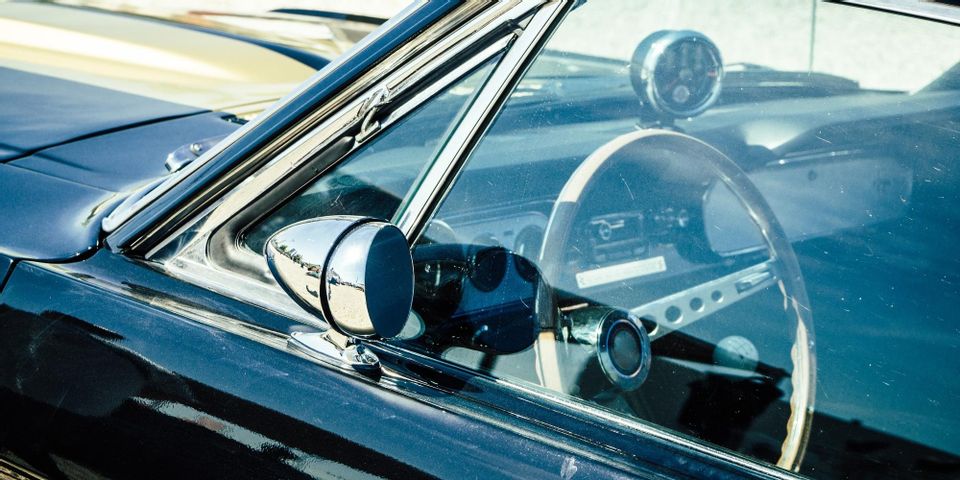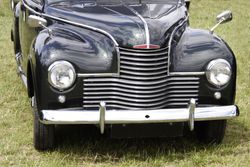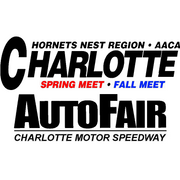
For antique car enthusiasts, the 1940s are a fascinating decade. The automobile market during these years was defined by America's entry into World War II. Everything from design and production to sales hit a turning point in this decade, which still affects the auto industry to this day.
Antique Cars in the Pre-War Era
At the beginning of the decade, American automakers were focused on luxury. Cars at this time were built larger and lower to the ground, and many used high-quality materials such as real wood paneling on the exterior or upholstery made from moleskin leather and authentic Scotch plaid. For example, Chrysler® introduced the first steel-roof woodie wagon in 1941—the Town and Country.
World War II
 In 1942, after America joined the war, the production of cars for civilian consumption was completely halted. Instead, manufacturers turned their efforts to airplane engines and military vehicles. Out of the effort to create a more sturdy, reliable automobile for American troops, the Jeep was produced. This came with a number of new features for cars, such as a safety rim wheel design that prevented the tire from flying off in case of a blowout.
In 1942, after America joined the war, the production of cars for civilian consumption was completely halted. Instead, manufacturers turned their efforts to airplane engines and military vehicles. Out of the effort to create a more sturdy, reliable automobile for American troops, the Jeep was produced. This came with a number of new features for cars, such as a safety rim wheel design that prevented the tire from flying off in case of a blowout.
Post-War
Because civilian auto production had been stopped for so long, demand for new cars was at a record high after the war. In addition to all of the major automakers returning to business as usual, smaller and independent companies like Studebaker® broke into the market with their vehicles. Features like sealed-beam headlights, all-weather air control, and key-operated starters were introduced and began to spread through the industry. Production, which had been centered in St. Louis, MO, shifted to Detroit, MI—America's car capital.
To see this era's most distinct styles, visit the Charlotte AutoFair in North Carolina. This three-day biannual antique car show in Mecklenburg County attracts over 10,000 sellers, buyers, and collectors every spring and fall. With over 30 years of history, this event is expected to attract 150,000 visitors. To learn more information about vendor spaces, call (704) 841-1990 or visit them online.
About the Business
Have a question? Ask the experts!
Send your question

